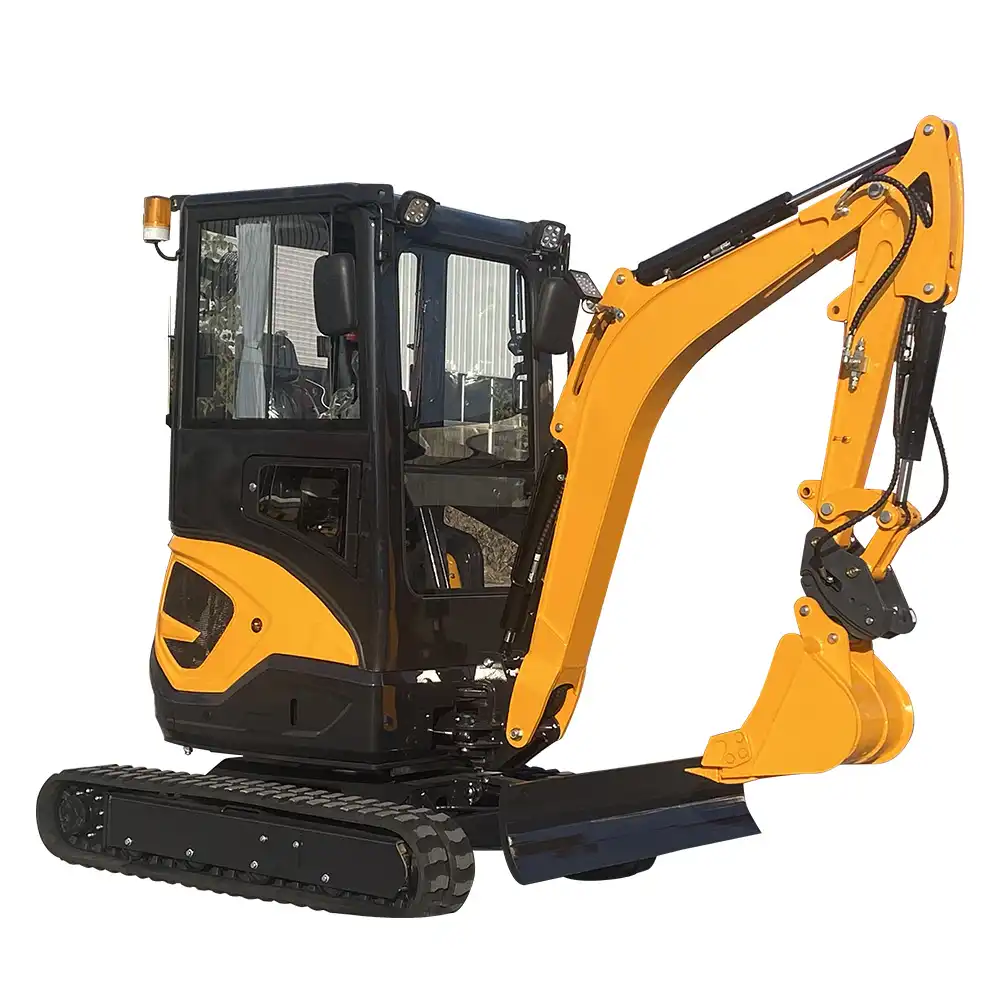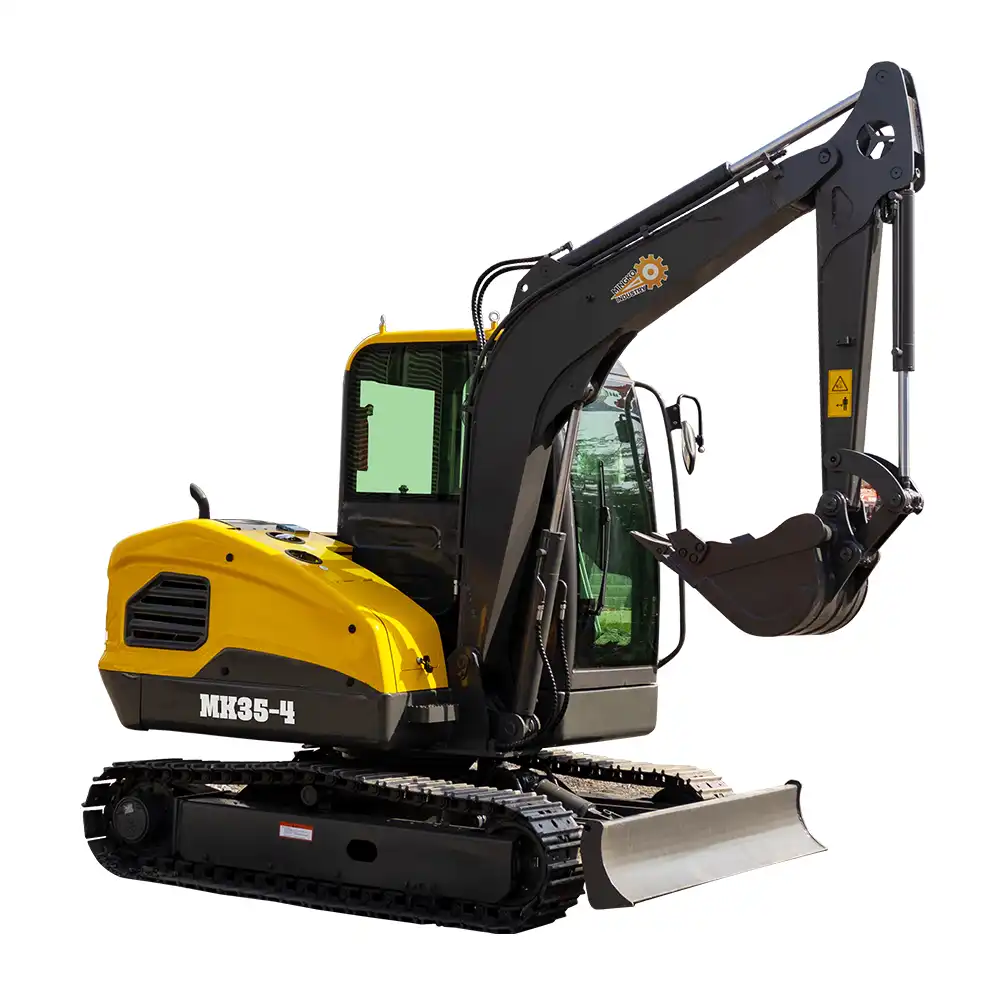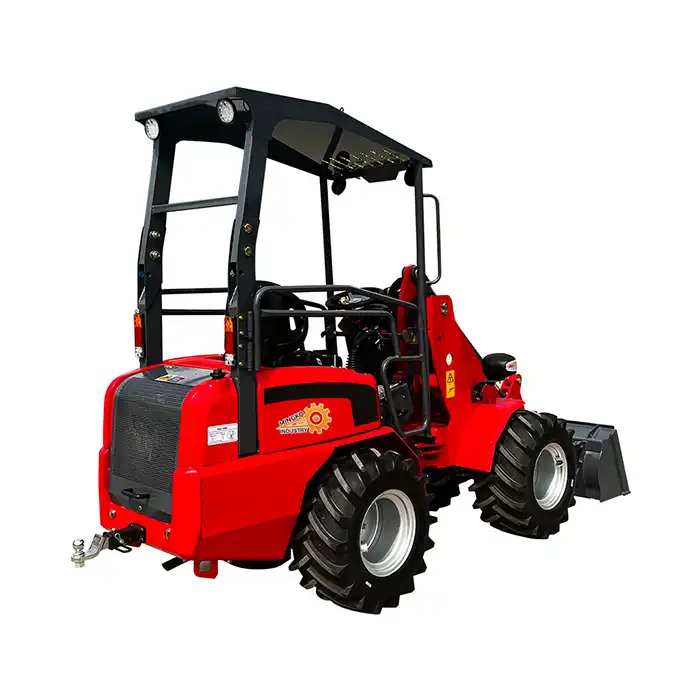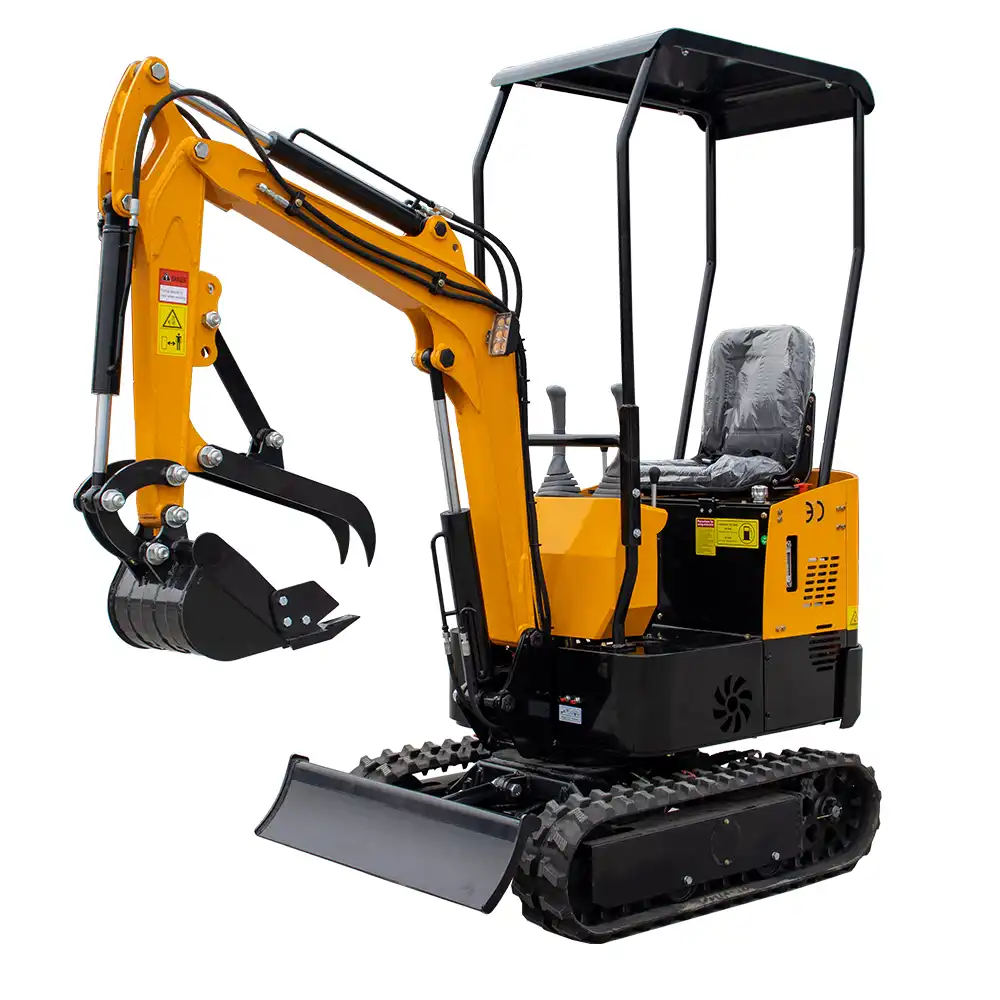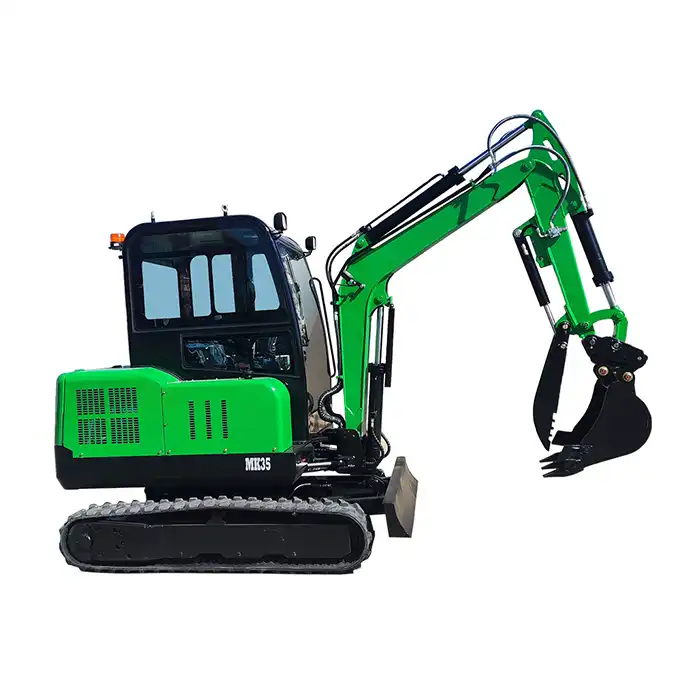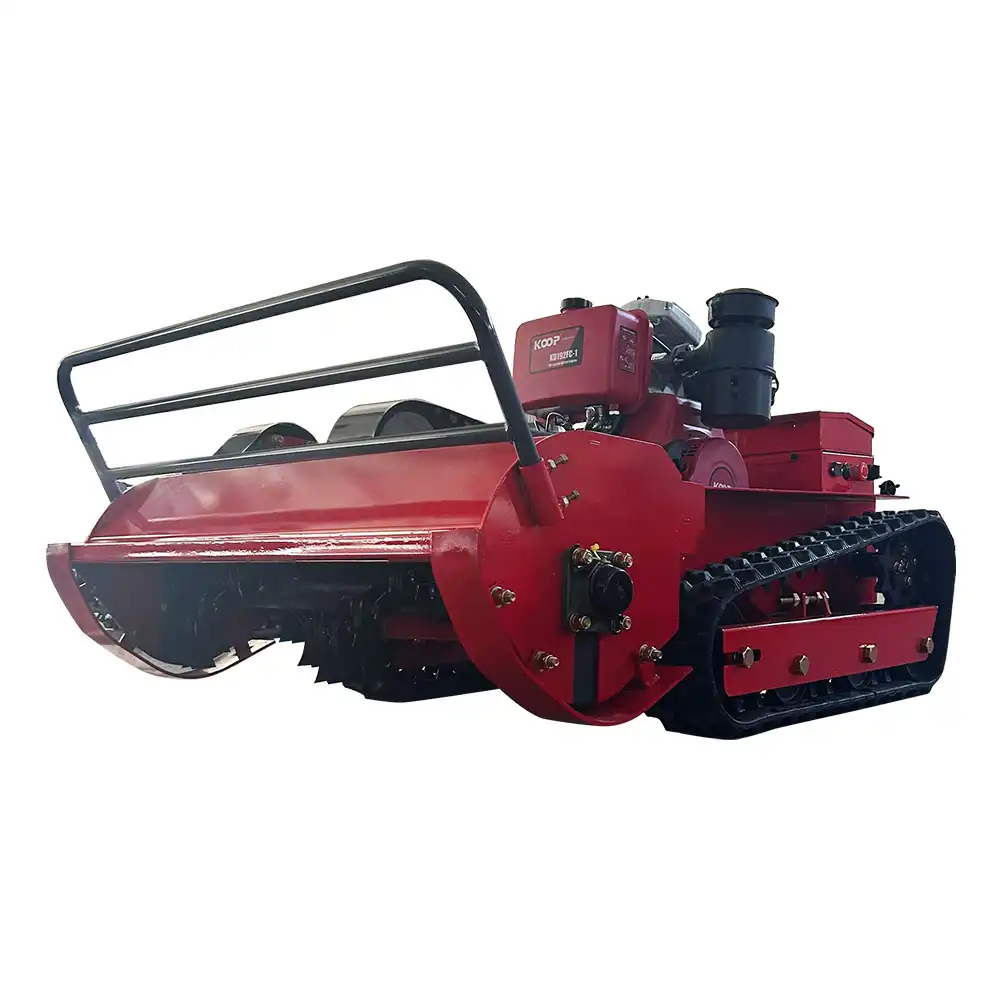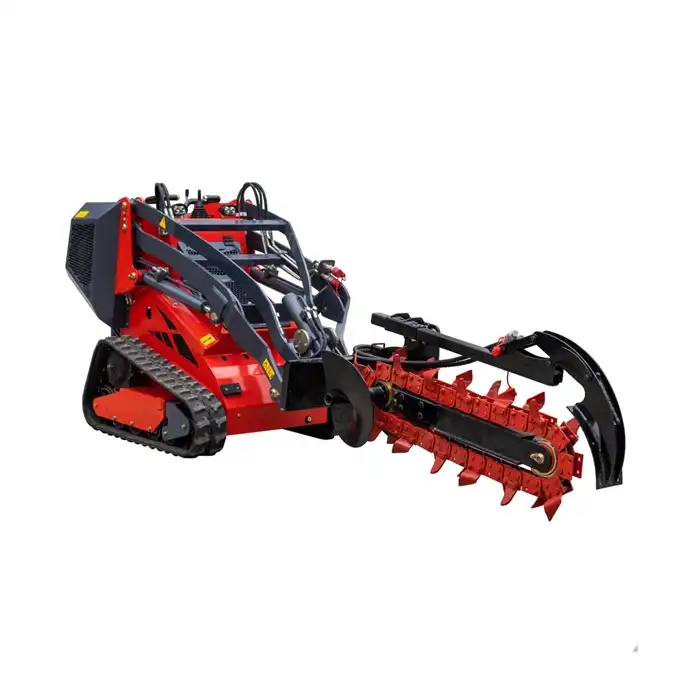Understanding what is a Mini Digger Excavator and how to choose the right model is essential for anyone involved in earth moving or construction site operations. A mini digger excavator is a versatile compact excavator widely used for small-scale digging, trenching, landscaping, and utility work. This article explores everything you need to know about mini digger excavators—from their core features to practical guidance on selecting the perfect model tailored to your project needs.
What is a Mini Digger Excavator?
A mini digger excavator, often called a compact excavator or small digger, is a piece of construction equipment designed for tasks requiring agility and precision in confined spaces. Weighing typically under 3 tons, these machines are distinguished by their small stature and powerful hydraulic systems. They excel at excavation, trenching, and groundwork, making them indispensable for landscaping, utility installation, and site preparation where access or space is limited. Unlike traditional backhoes or large hydraulic excavators, mini digger excavators feature an operator cabin with enhanced visibility and offer stable transportability. Their compact track loaders or wheeled undercarriages allow easy movement over rough terrain without damaging the surface. While “digger” and “excavator” are often used interchangeably, this machine’s reliability in executing delicate digging and earth-moving tasks distinguishes it in the heavy machinery industry.
The Problem It Solves and the Need It Fulfills
Excavation and earth-moving projects frequently encounter challenges like limited space, difficult terrain, and budget constraints. Large heavy machinery often proves inefficient or impractical in residential or urban projects requiring precision and minimal disturbance. This created a demand for smaller, agile machines that perform comparably without compromising digging capability. Mini digger excavators meet this gap effectively. These machines allow operators to access tight spots where larger excavators cannot maneuver. Their adaptability supports various tasks, such as utility work involving pipe laying, site grading on uneven terrain, and demolition in constrained areas. This versatility both accelerates project timelines and reduces labor intensity, making construction more productive and cost-effective.
Core Features and Functionality Deep Dive
A mini digger excavator integrates several key components that deliver its functionality. The hydraulic system powers the arm, boom, and bucket, enabling precise digging, lifting, and dumping operations. The operator cabin typically provides ergonomic controls and excellent visibility, enhancing safety and operational accuracy. Tracks or wheels offer stability and mobility depending on the terrain needs. For instance, crawler models utilize endless tracks that improve traction on loose soil or slopes, allowing careful grading and excavation even on uneven sites. Wheeled versions provide greater speed on solid surfaces, offering efficiency for urban utility works. Attachment compatibility is another important feature. Mini Excavators can be equipped with various tools like augers, breakers, grapples, or trenchers, expanding their application range from digging foundations to demolition or landscaping. The machine’s compact size does not inhibit its digging forces; models over 3 tons provide enhanced strength for demanding excavation, while those under 3 tons offer remarkable compactness and transportability.
Under the Hood: Understanding the Technology
The backbone of a mini digger excavator is its advanced hydraulic system, which converts engine power into smooth, responsive movement of digging implements. Modern machines incorporate electronically controlled hydraulic pumps that adjust pressure dynamically to optimize fuel efficiency and digging force. This precision means operators can undertake delicate trenching or aggressive digging depending on the task. Additionally, the operator cabin in many models is reinforced for safety and includes climate controls, sound insulation, and advanced monitoring displays allowing real-time diagnostics. Some cutting-edge models even feature GPS and telematics systems facilitating remote monitoring of machine health and location—vital for fleet management on larger construction sites. The track loader technology in mini excavators promotes stability. For example, crawler models use a continuous track assembly that distributes machine weight evenly, reducing ground pressure and enabling operation on soft soils without excessive sinking or damage.
Key Advantages of Mini Digger Excavators
Mini digger excavators provide several compelling benefits that make them popular among professionals:
- Compactness and Maneuverability: Their small footprint allows usage in confined areas inaccessible to larger equipment.
- Versatility: Attachments and adjustable features support a vast array of tasks including landscaping, utility installation, demolition, and groundwork.
- Transportability: Easy to transport between sites on standard trailers, minimizing logistical challenges.
- Fuel Efficiency: Advanced hydraulic and engine designs reduce operating costs.
- Operator Comfort and Safety: Ergonomic cabins and controlled hydraulic systems enhance productivity and reduce fatigue.
- Durability: Sturdy build and high-quality materials ensure long operational life, reducing downtime and maintenance expenses.
Potential Limitations and Considerations
Despite their advantages, mini digger excavators present some constraints:
- Limited Digging Power: While powerful, they cannot replace large excavators for massive earth-moving or heavy demolition.
- Cost Considerations: Quality mini excavators involve significant upfront investment; balancing model size against job requirements is crucial to avoid unnecessary spending.
- Operator Skill Requirement: Though user-friendly, efficient operation demands trained personnel familiar with hydraulic systems and safety protocols.
- Site Conditions: Certain models operate better on specific terrains — wheeled models might not perform well on soft or uneven ground compared to crawler types.
Thinking thoroughly about your project’s scope, ground conditions, and operational logistics will ensure you choose the right model to maximize efficiency without overspending.
Mini Digger Excavator vs. The Competition
Comparing mini digger excavators to other equipment such as skid steers or backhoes reveals both overlaps and distinctions. Skid steers offer excellent maneuverability in tight construction sites but are less specialized for deep trenching or precision digging. Backhoes combine excavator-like arms with front loaders but tend to occupy more space and are less nimble in compact environments. Mini digger excavators excel in earth moving and trenching tasks specifically where space is limited. Their hydraulic precision delivers more controlled digging compared to skid steers. Additionally, unlike some backhoes, the track loader technology in mini excavators offers superior balance and traction on challenging terrain. This makes them a versatile but focused option.
Target Audience and Ideal Use Cases
Mini digger excavators are perfect for landscapers, utility contractors, small construction firms, and municipal work crews. These machines suit projects ranging from residential site preparation, garden landscaping, and foundation trenching to minor demolition and utility pipeline installation. The compact design appeals to urban projects with limited site access. Construction companies looking for efficiency without the footprint of large heavy machinery also benefit greatly. Additionally, rental businesses find mini digger excavators an attractive inventory choice due to their cross-sector demand. Choosing a model under or over 3 tons depends on job nature: weigh the tradeoff between transport maneuverability and digging force to meet specific application needs. Overall, the mini digger integrates seamlessly into workflows requiring rapid operation, versatility, and reliability.
Frequently Asked Questions
Q1: What factors are most important when choosing a mini digger excavator?
A: Key considerations include weight class (under or over 3 tons), hydraulic power, operator comfort features, track type, and attachment compatibility. Matching these to your specific project tasks and site terrain ensures optimal machine performance.
Q2: Can a mini digger excavator handle heavy demolition tasks?
A: While capable of light demolition, mini digger excavators are generally designed for precision digging and earth moving. Larger excavators or specialized demolition machines are more appropriate for extensive heavy-duty demolition.
Q3: How do crawler mini excavators compare to wheeled versions?
A: Crawler excavators provide superior traction and stability on uneven or soft terrain, making them ideal for grading hills and rough sites. Wheeled models offer higher speed and mobility on firm surfaces but may struggle in muddy or unstable ground.
Q4: Is renting a mini digger excavator a cost-effective option?
A: Renting can be economical for short-term projects or jobs requiring specialized attachments. However, purchasing can reduce long-term costs if the equipment will be used frequently.
Q5: What safety features are standard on mini digger excavators?
A: Typical safety features include rollover protective structures (ROPS), seat belts, visibility-enhancing cabins, and hydraulic lockout systems to prevent accidental operation.
Q6: How does Shandong Mingko Industry Corporation support after-sale service?
A: We offer a 12-month warranty plus lifetime technical support. Our expert service team is accessible 24/7 for maintenance guidance, ensuring your machine operates smoothly at every stage.
Embrace the Right Mini Digger Excavator with Shandong Mingko Industry Corporation
Choosing the right mini digger excavator is essential for achieving optimal performance on any project. At Shandong Mingko Industry Corporation, we deliver industry-leading construction equipment tailored to your needs. With over 15 years of experience, our factory direct sales model ensures competitive pricing without middlemen, while our customization service supports MOQ 1 unit to match your unique requirements.
Our ISO 9001 and National High-Tech certifications reflect our commitment to quality and innovation. Each mini digger excavator is backed by a 12-month warranty and lifetime technical assistance, guaranteeing reliability throughout your equipment’s life cycle. Our professional sales and service team is available 24/7—Contact Us atsales@mingkomach.com to discuss how our mini digger excavators can support your construction projects efficiently.
Partner with the trusted Mini Digger Excavator manufacturer and supplier Shandong Mingko Industry Corporation offers today for unmatched quality, durability, and customer satisfaction.
Conclusion and Future Outlook
Mini digger excavators serve as essential tools in modern construction and landscaping thanks to their compact design and powerful capabilities. Understanding their features, limitations, and advantages aids buyers in selecting models ideally suited for their project requirements. Ongoing technological innovation promises improved fuel efficiency, operator comfort, and digital integration, further enhancing their productivity and workplace safety.
Investing in a quality mini digger excavator from a reliable manufacturer like Shandong Mingko Industry Corporation positions businesses well to meet diverse earth-moving challenges in the evolving construction landscape.
References
1. Modern Earth Moving Equipment: Principles and Applications – John Wiley & Sons
2. Construction Machinery Handbook – Springer Publishing
3. Compact Excavation Techniques – National Association of Construction Equipment Manufacturers
4. Hydraulics and Pneumatics in Heavy Machinery – McGraw-Hill Education
5. Site Preparation and Groundwork Technologies – American Society of Civil Engineers
6. Operator Safety in Compact Excavators – Occupational Safety and Health Administration (OSHA) Reports


